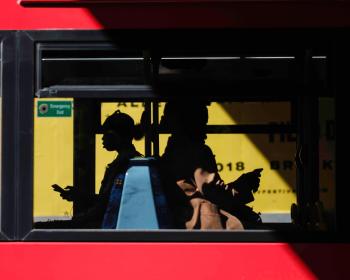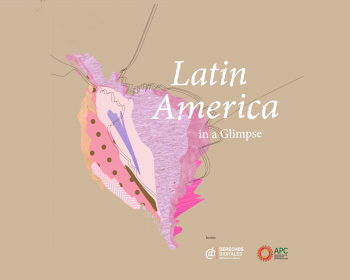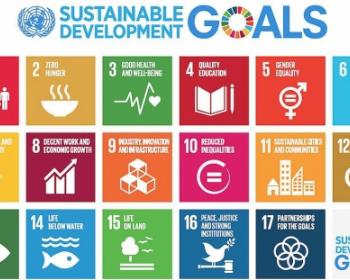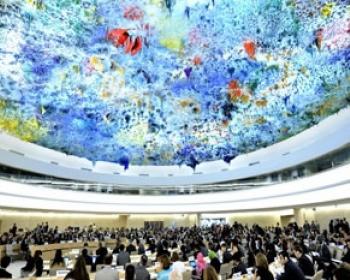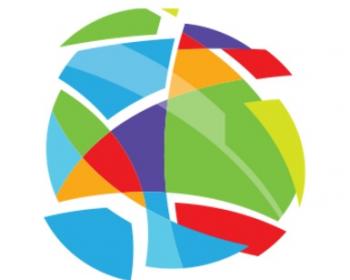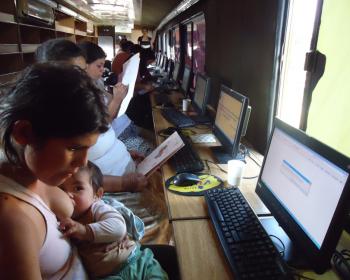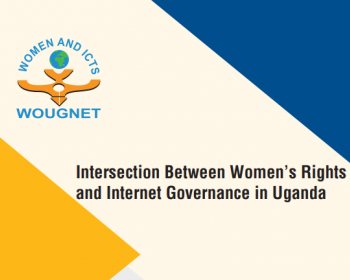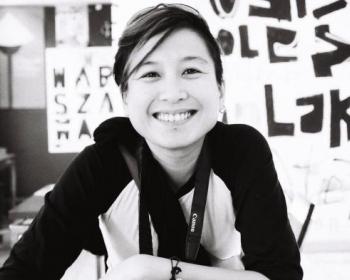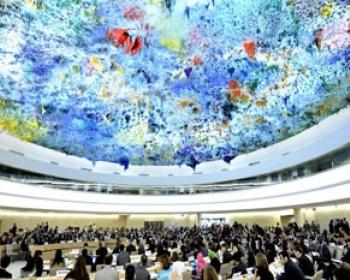women's rights
This submission highlights the impact of the policies and practices of internet intermediaries on the ability of women and LGBTIQ communities to access, shape and use ICTs, in the context of the full realisation of their human rights. It focuses on two thematic areas: online GBV and sexual rights.
In this fourth edition of Latin America in a Glimpse, Derechos Digitales followed a global trend by seeking to understand the intricate link between gender and technology, and the responses that, from that part of the world, different groups of women have given to this complex, problematic and difficult relationship.
Women are not a homogenous group and our access to technology is also affected by a number of other factors such as age, class, caste, race, ethnicity, income, culture, religion, sexual orientation, gender identity, abilities, urban or rural locality, etc.
Oral statement on bridging the gender digital divide delivered by APC's Deborah Brown under Item 3: General Debate, at the 35th session of the UN Human Rights Council, 14 June 2017.
How do we measure women’s rights online? Even if women have access, what kind of environment are they able to access online? Are digital spaces safe for women? These are some of the questions APC member Foundation for Media Alternatives addressed in its digital gender report card on the Philippines’ progress in closing the digital gender gap.
APC will be joining the organisations, tech companies, universities, startups and governments from 95 countries attending the 2017 RightsCon taking place in Brussels, Belgium, on 29-31 March. Check out session highlights here!
In this submission to the Office of the High Commissioner for Human Rights, APC explores the human rights implications of the gender digital divide for women and girls and offers possible solutions to bridging the divide from a human rights perspective, highlighting APC’s work in this area.
The internet is recognized as a potentially transformative space. However, lack of integration of women’s rights and sexual rights perspectives in internet governance conversations and processes was identified as a key factor limiting the internet to fulfill its potential as transformative space for all. This policy brief provides recommendations for policy processes to ensure equal part...
The 2016 Stieg Larsson Prize is awarded to the Malaysian feminist activist, poet and writer Jac sm Kee, for her struggle for women’s right to a free online environment and for an open and equal information society based on the potential of the internet. In the words of the Stieg Larsson Prize jury, “Jac sm Kee is a pioneer in the fight for gender equality. Through her groundbreaking work fo...
APC welcomes the prioritisation of gender equality and the empowerment of all women and girls in Goal 5 of the 2030 Agenda, in particular, recognition of the need to enhance the use of enabling technology to achieve this as a clear target.

Association for Progressive Communications (APC) 2022
Unless otherwise stated, content on the APC website is licensed under Creative Commons Attribution 4.0 International (CC BY 4.0)



